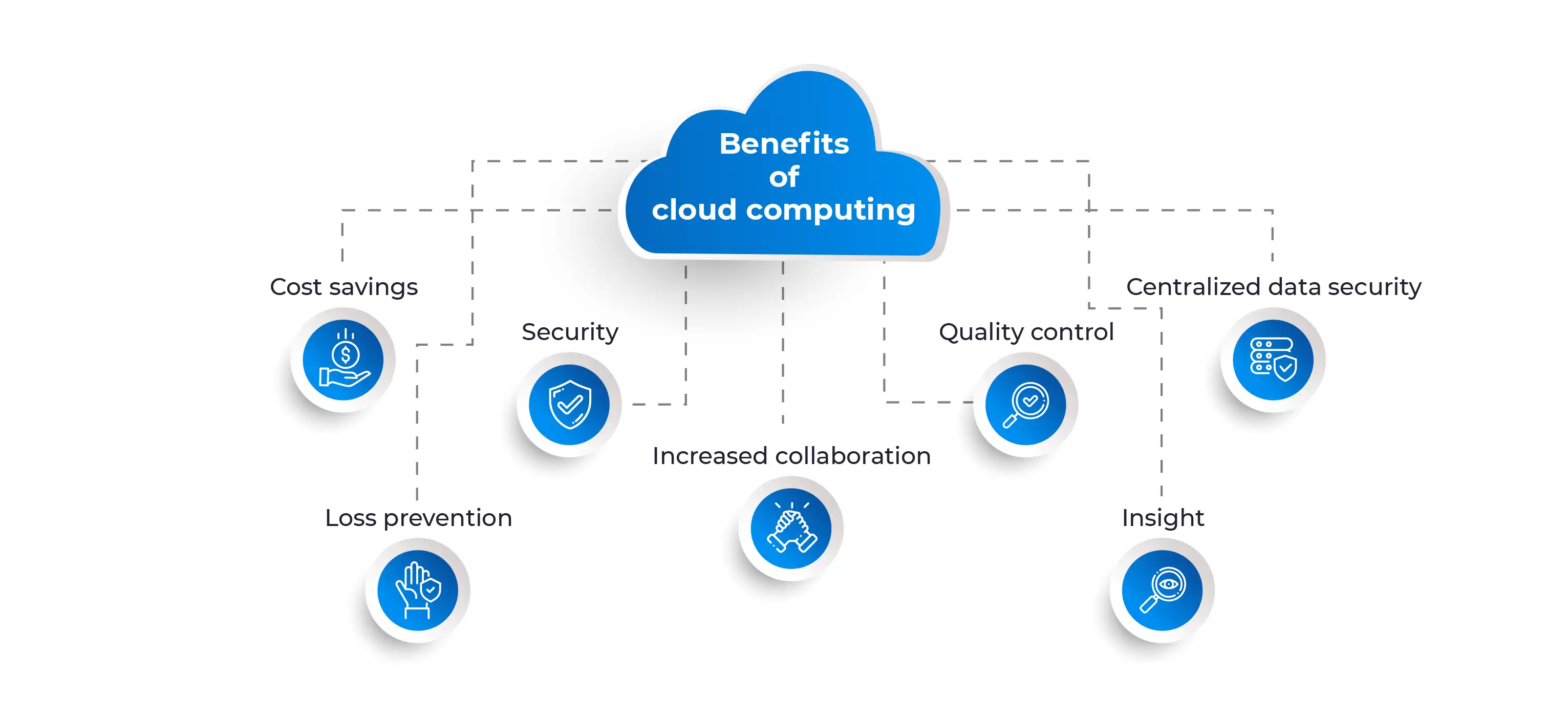
Despite the statistics pointing to the business efficiencies, cost benefits, and competitive advantages that cloud computing holds, a huge section of the corporate community continues to operate without it. According to an International Data Group survey, 69 percent of firms are already employing cloud technology in some capacity, and 18 percent intend to deploy cloud-computing solutions at some time. At the same time, Dell reports that organizations that invest in big data, cloud, mobility, and security grow revenue up to 53% faster than their competitors. As evidenced by these statistics, an increasing number of tech-savvy firms and industry executives are understanding the numerous advantages of the cloud-computing trend.
Mastering cloud computing will open a window of opportunities. Getting a cloud certification will definitely help you advance in your career and get you an edge over others. You can master Cloud computing and become an expert in cloud applications and architecture with cloud computing courses in Dubai and accelerate your career.
Also Check Out: Top Cloud Computing Certifications
The are many benefits to cloud computing. In addition to enhancing businesses' profitability margins, cloud computing helps people manage their businesses more efficiently, better serve their consumers, and manage their businesses more efficiently. The following are benefits of cloud computing;
If you're concerned about the cost of making the switch to cloud computing, you're not alone. The initial expense of adopting a cloud-based server concerns 20% of enterprises. However, those attempting to assess the benefits and drawbacks of using the cloud must consider more than simply the initial cost; they must also consider ROI.
Once you're on the cloud, having fast access to your company's data will save you time and money when starting new projects. And, for those concerned about paying for capabilities they don't need or desire, most cloud computing services are pay-as-you-go. This means that even if you don't make use of what the cloud has to offer, you won't have to spend money on it.
Many businesses are concerned about security when it comes to implementing a cloud computing solution. After all, if files, applications, and other data aren't maintained securely onsite, how can you be sure they're safe? What's to stop a cybercriminal from doing the same thing if you can remotely access your data? Well, quite a bit, to be honest.
For one thing, a cloud host's full-time duty is to closely monitor security, which is far more efficient than a traditional in-house system, in which a company must split its efforts among a plethora of IT concerns, security is only one of them. While most firms are reluctant to openly discuss the prospect of internal data theft, the truth is that a startlingly high percentage of data thefts occur internally and are committed by employees. When this is the case, keeping sensitive information offshore can actually be much safer. Of course, this is all pretty abstract, so let's look at some hard data.
You May Also be Interested in: How to be a Certified Cloud Security Professional?
If your company does not invest in a cloud-computing solution, all of your precious data is inextricably linked to the office PCs on which it is stored. This may not appear to be a concern, but the reality is that if your local hardware fails, you may wind up permanently losing your data. This is a more prevalent issue than you may think. Computers can fail for a variety of causes, ranging from virus infections to age-related hardware degeneration to simple user error.
Alternatively, despite the best intentions, they can be misplaced or stolen (over 10,000 laptops are reported lost every week at major airports). If you aren't using the cloud, you risk losing all of your locally saved data. However, with a cloud-based server, all of the information you've uploaded to the cloud is safe and instantly accessible from any computer with an internet connection, even if the computer you normally use is down.
In business, you have to prepare for every eventuality, and I do not mean just insurance. You have to think ahead and consider any instances that might lead to data loss, such as natural disasters, breaches, simple errors, theft, and unprecedented system shutdowns. Having your data only stored on hardware is extremely dangerous and reckless because anything can happen, and you will lose everything in a moment. With cloud computing, you can have previous versions of your software securely uploaded to the cloud.
In addition, with cloud computing, your data and software are stored and run in several different locations so that in the event of any interruptions, system failures, or attacks, traffic is seamlessly redirected to a secure site. With such features, your clients will not even catch wind of system failures because their activity on sites and applications is uninterrupted. This ensures customer loyalty and protects your brand's position in the market. Data loss can be particularly detrimental to the brand because data is power, and data is wealth. It could take you years and a tremendous amount of money to start building your data up to where it was before a disaster, and that is why data recovery protocols should be in place.
Check Out a Related Post: Cloud Computing Trends to IT Professionals
Few things are as damaging to a company's growth as poor quality and inconsistent reporting. In a cloud-based system, all documents are saved in a single location and format. With everyone having access to the same information, you can maintain data consistency, avoid human error, and keep a record of any edits or updates. Managing information in silos, on the other hand, can result in employees unintentionally saving separate versions of documents, resulting in confusion and diluted data.
Also Read: Top Cloud Computing Skills
Data backups are consolidated in the cloud providers' data centers when you use cloud computing, eliminating the need for individual users or teams to keep their own backups locally or offsite. This reduces the possibility of data loss if any one backup fails or is destroyed by a calamity. Cloud providers can restore the data from another copy kept in their cloud storage, which is constantly updated as new data is added. Teams can use cloud security technologies like data encryption and two-factor authentication to gain more privacy than they would if they relied on their own equipment or servers at home or at the office. Oracle employs a security-first cloud architecture with built-in automated protection.
As we progress farther into the digital age, it becomes evident that the old saying "knowledge is power" has taken on a more current and realistic form: "Data is money." There are nuggets of precious, actionable information hidden within the millions of bits of data that surround your customer transactions and business processes, just waiting to be recognized and acted upon. Of course, unless you have access to the correct cloud-computing solution, combing through that data to locate these kernels can be extremely tough. Many cloud-based storage systems include cloud analytics to provide a birds-eye perspective of your data. With your data in the cloud, you can easily deploy tracking systems and create customized reports to analyze data throughout your organization. You can use these insights to boost efficiencies and create action plans to accomplish organizational goals.
Also Read: Types of Cloud Computing Service
Cloud-based storage allows you to store files in a distant database rather than maintaining them on a proprietary hard drive or local storage device. As long as an electronic device has internet connectivity, it has access to the data as well as the software applications needed to run it. For a variety of reasons, including cost savings, greater productivity, speed and efficiency, performance, and security, cloud computing is a popular choice among individuals and corporations. For effective, reliable software solutions.
You May Also Like: Cloud Computing Job Opportunities
Explore the AWS Courses Offered By Edoxi Training Institute in various countries and locations in the Middle East
| Country | UAE | Qatar | Saudi Arabia |
| Course Location | Dubai | Doha | Riyadh |

SENIOR TRAINER: NETWORKING AND PROGRAMMING
Jon Baleva is an IT professional with 20 years of experience in programming and networking. He is an expert in Python & IT Security domains as well as in Operating Systems (OS). He has trained professionals and students in IT Programming courses, Microsoft Azure, Linux & MAC OS. He is also a writer who writes on tech-related topics for various tech magazines in Philippine. He is now an IT Trainer with Edoxi Training Institute, Dubai.
